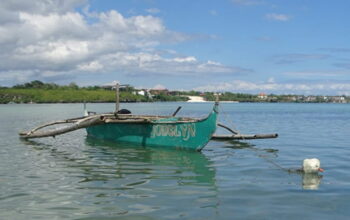CORTES, Bohol (PIA) – Not really keen in accepting more challenges like the entry of more coronavirus disease (COVID) and African Swine Fever, Bohol is now issuing a temporary prohibition on the entry of domestic and captured wild birds, live poultry, poultry products and by-products from mainland Luzon for 30 days.
With this, by Executive Order No. 12, series of 2022, Bohol red tags the ducks, quails and native chickens, embryonated eggs or balut, which have a high probability of contamination, and declares a temporary prohibition for their entry to the island province, for 30 days.
By poultry products and by products, the EO means semen, table eggs, quail eggs, embryonated eggs or balut and manure.
The same EO specifically sets the ban to be effective from March 9, 2022 to April 8, 2022.
The local temporary ban for the entry of such came after the Department of Agriculture through the Bureau of Animal Industry-Animal Disease Diagnostics and Reference Laboratory (ADDRL) found bird samples from Bulacan and Pampanga found to be of the Highly Pathogenic Avian Influenza subtype H5N1 or bird flu.
Avian influenza or bird flu is a highly contagious viral disease caused by Influenza A Virus affecting birds and poultry.
As authorities confirmed positive cases of bird flu in Bulacan and Pampanga, they have also found similar strains of the highly contagious fowl disease in the provinces of Laguna and Camarines Sur.
Information bared that the DA BAI ADDRL is also currently testing and spreading surveillance teams in other areas where the positive cases could have spilt already.
The ban is also a pro-active move to protect and insulate Bohol’s 1.8 billion poultry industry, which could be jeopardized by the simple entry of a single bird, which theoretically has the potential to wipe out the local industry, and which has the potential for the contamination to jump from birds and fowl to humans.
With this, the Bohol initiative came after the DA issued Memorandum No 5 series of 2022, dated March 7, 2022.
The aforesaid memorandum lays the additional guidelines on movement of domestic and captured wild birds, poultry products and by-products during this bird flu outbreak.
The EO also mandates a massive information education and communication campaign about bird flu, mobilizing local government officials in the barangays, towns and poultry sector stakeholders.
The same EO also mandates local chief executives to strengthen and implement minimum biosecurity measures in their areas of responsibility particularly in poultry farms and facilities, slaughterhouses, livestock and poultry auction areas and display facilities including poultry dressing plants.



